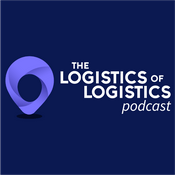118 episodios
- Welcome to The Daily AI Briefing! Your comprehensive guide to today's most significant developments in artificial intelligence. I'm your host, bringing you the latest breakthroughs, innovations, and trends that are shaping our technological landscape. Stay informed and ahead of the curve with these essential updates that matter to both industry professionals and tech enthusiasts alike. Today, we'll cover OpenAI's groundbreaking release of their GPT-5 model family, Google's conservation-focused open-source AI for animal sounds, Perplexity's new workflow automation features, MIT's revolutionary protein location prediction AI, and a quick roundup of trending AI tools. Let's start with today's biggest headline. OpenAI has officially launched its flagship GPT-5 models, replacing several previous iterations including GPT-4o and 4.5. This new family includes three variants: GPT-5, GPT-5 Pro, and GPT-5 Mini. What makes this release particularly noteworthy is that the standard GPT-5 will be available to free users, albeit with usage limits. Plus subscribers will enjoy higher limits, while Pro users get unlimited access. The technology employs a real-time router that switches thinking capabilities on or off based on the specific task at hand. GPT-5 delivers state-of-the-art performance across coding, writing, math, and health benchmarks. The Pro version, available to subscribers on the $200 monthly plan, provides extended thinking capabilities with scaled parallel test-time compute for more comprehensive answers. Meanwhile, GPT-5 Mini serves as a fallback when free and Plus users hit their rate limits. OpenAI also emphasizes that these models hallucinate less, exhibit reduced deception, and are more transparent about their capabilities and limitations. Moving to conservation technology, Google DeepMind has open-sourced an upgraded version of Perch, an AI model designed to analyze wildlife audio recordings. This tool helps scientists track endangered species across diverse environments, from forests to coral reefs. The new version leverages twice the training data of its 2023 predecessor and can effectively disentangle complex soundscapes from thousands or even millions of hours of audio. Perch can answer various ecological questions, from species counts to detecting newborns. What's particularly valuable is its suite of open-source tools that combine vector search with active learning, enabling detection of species with limited training data. This advancement means conservationists no longer need to manually sift through massive volumes of bioacoustic data when planning ecosystem protection measures. For productivity enthusiasts, Perplexity has introduced Comet Shortcuts, a feature for creating automated workflows triggered anywhere in your browser with simple commands. The setup process is straightforward: access your Perplexity Comet browser, type "/" anywhere, select "Create a shortcut," and enter your desired prompt with a custom name. For example, you could create a vendor-review shortcut that analyzes products and searches for unbiased assessments whenever you're shopping online. In the realm of medical AI, researchers from MIT, Harvard, and the Broad Institute have developed PUPS, an AI system that predicts the exact location of virtually any protein within a single human cell. This breakthrough could significantly impact disease diagnosis and treatment approaches. PUPS combines a protein language model that captures protein structure with an inpainting model that understands cell type, features, and stress state. The system generates highlighted cell images showing predicted protein locations and can even work with previously unseen proteins and cell types. Testing shows PUPS consistently outperforms baseline AI methods with lower prediction errors. As for trending AI tools, ChatGPT now features the new GPT-5 models we discussed earlier. NuMarkdown offers an 8B parameter open-source reasoning model for OCR. Midjourney h
- "Welcome to The Daily AI Briefing!" Today, we're tracking major developments across the AI landscape, from OpenAI's government initiative to Google's education push, plus breakthrough frameworks from Microsoft and practical tools for developers. I'm your host, bringing you the most significant AI updates that are shaping our digital future. In today's briefing: OpenAI's $1 deal for government agencies, Google's educational AI features, Claude's coding subagents, Microsoft's revolutionary CLIO framework, trending AI tools, job opportunities, and industry updates from Midjourney, Google, Anthropic, and xAI. Let's start with OpenAI's major government push. The company is offering ChatGPT Enterprise to all federal agencies for just $1 per agency for the next year. This comes through a partnership with the U.S. General Services Administration and includes unlimited access to advanced models with additional security features. OpenAI is also providing a 60-day period of unlimited use for features like Deep Research. The goal? Helping government officials reduce bureaucracy and make services more efficient. They're even setting up dedicated training resources specifically for federal employees. Moving to education, Google is making significant inroads with a new Guided Learning mode for Gemini. Similar to ChatGPT's Study Mode, this feature acts as a learning partner rather than an answer generator. It offers step-by-step guidance, helping students build critical thinking skills instead of simply providing solutions. The mode incorporates images, videos, and interactive quizzes to test knowledge. Google is also offering its $250 per month AI Pro Plan free for college students in select countries, including the U.S., and investing $1 billion over three years for AI training at American colleges. For developers, Anthropic has released a tutorial on Claude Code's subagents feature. This tool allows you to create custom AI assistants with specific roles and expertise, each with their own context window. The setup process is straightforward: install Claude Code via npm, run it in your project directory, create new agents through the interface, and configure them with specific purposes and tools. The real advantage comes from creating multiple specialized subagents for different tasks like testing, reviewing, and bug-fixing, maintaining focused expertise for each job. Microsoft has unveiled CLIO, a groundbreaking framework that represents a significant shift in AI reasoning capabilities. Unlike traditional models with pre-baked reasoning strategies, CLIO enables non-reasoning LLMs to develop their own thought patterns and adapt in real-time. The system builds and refines its reasoning through self-reflection, creating feedback loops to explore ideas, manage memory, and identify uncertainties. This self-adapting behavior gives users control over reasoning paths and execution. The results are impressive - CLIO boosted GPT-4.1's accuracy on biomedical questions from 8.55% to 22.37%. Several exciting AI tools are trending today. "Anything" lets you launch mobile and web apps from just a prompt with no coding needed. Bing Image Creator now features OpenAI's latest GPT-4o image model. "Endex" brings AI functionality directly into Excel, while Kitten TTS offers lightweight text-to-speech that runs without a GPU. In industry news, Midjourney has added an HD video mode for premium subscribers, delivering 4x more pixels than the standard mode. Google's agent-based coding tool Jules is out of beta, though with reduced free plan limits. Anthropic has integrated automated security reviews in Claude Code, and xAI's Grok Imagine for video and image generation is rolling out in early access on Android devices. That concludes today's AI Briefing. The rapid advancement across government applications, education, developer tools, and fundamental AI frameworks shows how quickly this technology continues to evolve. Whether you're a developer, student, or
- Welcome to The Daily AI Briefing! Your daily dose of the most significant developments in artificial intelligence, delivered concisely and clearly. I'm your host, and today we've got a packed lineup of breakthrough AI announcements that are reshaping the technological landscape as we speak. In today's briefing, we'll cover Google's impressive Genie 3 interactive world model, OpenAI's surprising move into open-source with two new models, NotebookLM's clever Video Overview feature, and Anthropic's upgraded Claude Opus 4.1. These developments represent major shifts in AI capabilities and accessibility. First up, Google DeepMind has unveiled Genie 3, a groundbreaking interactive world model. This system can generate entire interactive environments in real-time from a simple text prompt. What makes this special is the 720p environments with real-world physics that users can explore freely, with new visuals emerging at 24 frames per second. The model maintains visual memory for up to a minute, ensuring consistency between scenes while computing relevant information multiple times per second. Beyond gaming applications, Genie 3 lays crucial groundwork for training embodied AI that can adapt to changing environments in real-time. In a move that surprised many in the AI community, OpenAI has released two open-source models: gpt-oss-120b and gpt-oss-20b. These are OpenAI's first open LLMs since GPT-2 in 2019, instantly becoming the top models on Hugging Face. The larger 120B variant performs comparably to o4-mini on core benchmarks, while the smaller 20B version competes with o3-mini and can run on laptops with just 16GB of memory. Both models feature adjustable reasoning capabilities and support agentic workflows. This represents a major shift for OpenAI, finally living up to its name by giving developers access to powerful models they can run and modify in their own environments. Moving to productivity tools, Google's NotebookLM has introduced a fascinating Video Overview feature. This tool transforms documents into AI-narrated video presentations with slides, automatically extracting images, diagrams, quotes, and numerical data from your content. The process is straightforward: upload documents to NotebookLM, click "Video Overview" in the Studio panel, customize as needed, and download your finished MP4. It's an elegant solution for quickly creating educational content or presentations from existing documents. Meanwhile, Anthropic has released Claude Opus 4.1, an upgrade to their flagship model that improves performance across coding, research, and data analysis tasks. The new version shows measurable improvements on benchmarks like SWE-bench Verified, TerminalBench, and visual reasoning tests. Customers report real-world benefits with multi-file code refactoring and pattern identification in large codebases. Anthropic indicates this is just the beginning of "substantially larger improvements" planned for their models. That wraps up today's AI Briefing. We've seen significant advances in interactive world models, open-source AI accessibility, content creation tools, and specialized AI assistants. The pace of innovation continues to accelerate, with each development opening new possibilities for how we work, create, and interact with technology. Join us tomorrow for another update on the rapidly evolving world of artificial intelligence. Until then, stay curious and keep exploring the frontiers of AI!
- Welcome to The Daily AI Briefing! Today we're covering the most significant developments in artificial intelligence, from OpenAI's new mental health detection features to Google's game-based AI testing arena. We'll also explore how to create consistent character images, examine how AI is reshaping the developer profession, and highlight trending tools and job opportunities in the AI space. First up, OpenAI is enhancing ChatGPT's ability to detect mental distress. Ahead of GPT-5's anticipated release, the company has implemented changes to promote healthier usage of their AI assistant. While instances are rare, OpenAI acknowledges that GPT-4o occasionally failed to recognize signs of emotional dependency or delusion. They've now built custom evaluation rubrics to flag distress and provide appropriate evidence-based resources. This initiative involves collaboration with physicians and human-computer interaction experts to continually improve their approach. In competitive AI benchmarking news, Google has launched Kaggle Game Arena, a platform where leading AI models face off in strategic games. The arena tests reasoning abilities, long-term planning, and problem-solving capabilities. The inaugural tournament features eight models, including Gemini 2.5 Pro and Grok 4, competing in chess. Google plans to expand to more complex games like Go and Poker, potentially leading to the discovery of novel strategies as models advance. For content creators, Ideogram has released a new character consistency model that enables users to create unlimited character variations from just one reference image. The process involves uploading a high-quality front-facing photo, masking the face, writing descriptive prompts, and generating variations. The more specific your prompts, the better your results will be. GitHub's recent survey of AI tool users reveals fascinating insights into how the developer role is evolving. Developers typically progress through four stages: from Skeptic to Explorer to Collaborator to Strategist. Most respondents believe AI will write 90% of their code within 2-5 years, but rather than feeling threatened, they see themselves evolving into orchestrators who manage AI-generated work. Future developers will likely focus on prompt design, system thinking, and agent management. Among trending AI tools this week are AgentHub, a sandbox for AI agent simulation; Lindy 3.0, an AI employee with agent-building capabilities; Grok Imagine, xAI's new video generation tool; and Tasker AI, which offers personal AI agents for everyday tasks. In job opportunities, companies like Scale AI, Anthropic, UiPath, and Cresta are hiring for various AI-related positions, from software engineering to customer success management. Before we wrap up, it's worth noting that ChatGPT is on track to reach 700 million weekly active users this week, up from 500 million in March – a fourfold increase that underscores the rapidly growing adoption of AI assistants in our daily lives. That's all for today's AI Briefing. Thank you for joining us as we navigate the ever-evolving landscape of artificial intelligence. Stay informed, stay curious, and we'll see you tomorrow for more cutting-edge developments in the world of AI.
- Welcome to The Daily AI Briefing! In today's fast-moving world of artificial intelligence, staying informed is crucial. I'm your host, bringing you the most significant AI developments of the day. From groundbreaking model releases to industry shifts and practical tutorials, we've gathered everything you need to know about today's AI landscape in one concise briefing. Today, we'll cover xAI's new video generator Grok Imagine, Google's multi-agent Gemini 2.5 Deep Think, a clever tutorial for extending AI videos, Anthropic's research into AI personality shifts, and more industry updates worth your attention. First up, Elon Musk's xAI is officially rolling out Grok Imagine to all SuperGrok and Premium+ X subscribers on iOS. This new AI image and video generator creates 15-second videos from simple text prompts or images, complete with native audio. The model generates content significantly faster than competitors, with Musk claiming it works in "1/2 to 1/4 the time rivals take to make a single image." While the videos appear more visibly "AI-generated" compared to other platforms, Musk promises the quality "should get better every day." Moving to Google, they've released Gemini 2.5 Deep Think, their first publicly available multi-agent model. This system employs "parallel thinking" by spawning multiple agents to explore possible solutions simultaneously before determining the best answer. Impressively, it scored 34.8% on Humanity's Last Exam, outperforming both Grok 4 and OpenAI's o3. The model is now available to Gemini app users on Google's $250/month Ultra plan, with a specialized IMO variant accessible to select researchers. For content creators, there's a clever workaround to bypass Google Veo 3's 8-second clip limit. Using Google Flow's frame-to-video feature, you can create longer videos while maintaining character consistency. The process involves creating an initial video, saving the final frame, then using that frame to generate a new sequence, and finally combining the clips for a seamless experience. In research news, Anthropic has identified "Persona Vectors" – neural network activations that help understand why AI models sometimes exhibit unexpected personality traits like sycophancy or unethical behavior. By comparing activation patterns between opposing behaviors, researchers can now better control these shifts and identify problematic training data. Among trending AI tools today are Learnify for creating video courses from any content, Jenova AI for the MCP ecosystem, Runway's Aleph video editing model now available via API, and Cohere's enterprise-focused Command A Vision. Meanwhile, Mistral is reportedly seeking $1 billion in funding at a $10 billion valuation, and OpenAI has removed the feature allowing ChatGPT conversations to be discoverable by search engines. That wraps up today's AI Briefing. The pace of innovation continues to accelerate, with companies pushing boundaries in video generation, multi-agent thinking, and understanding AI behaviors. As these technologies become more accessible, we're seeing both exciting possibilities and important questions about control and direction. Stay curious, stay informed, and we'll see you tomorrow for another update on the rapidly evolving world of artificial intelligence. This has been The Daily AI Briefing.
Más podcasts de Noticias
Podcasts a la moda de Noticias
Acerca de The Daily AI Briefing
The Daily AI Briefing is a podcast hosted by an artificial intelligence that summarizes the latest news in the field of AI every day. In just a few minutes, it informs you of key advancements, trends, and issues, allowing you to stay updated without wasting time. Whether you're a enthusiast or a professional, this podcast is your go-to source for understanding AI news.
Sitio web del podcastEscucha The Daily AI Briefing, Así las cosas con Carlos Loret de Mola y muchos más podcasts de todo el mundo con la aplicación de radio.net

Descarga la app gratuita: radio.net
- Añadir radios y podcasts a favoritos
- Transmisión por Wi-Fi y Bluetooth
- Carplay & Android Auto compatible
- Muchas otras funciones de la app
Descarga la app gratuita: radio.net
- Añadir radios y podcasts a favoritos
- Transmisión por Wi-Fi y Bluetooth
- Carplay & Android Auto compatible
- Muchas otras funciones de la app


The Daily AI Briefing
Escanea el código,
Descarga la app,
Escucha.
Descarga la app,
Escucha.






































